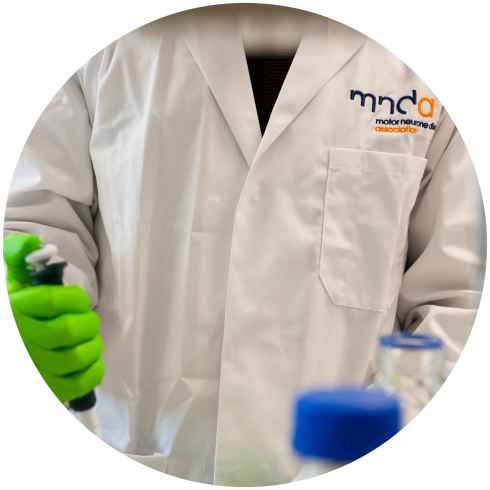Identifying ways that the mutant FUS-MND protein changes the response of neuronal cells to axon degeneration and regrowth, compared to healthy cells.
Principal Investigator: Prof Helene Plun-Favreau
PhD Student: Maite Lopez Fabrizio
Lead Institution: University College London
MND Association Funding: £143,103
Funding dates: October 2025 - March 2029
About the project
Motor neurons have long thread-like structures that carry signals from the brain and spinal cord to the muscles. These structures are called axons, and they are one of the first parts of the motor neuron that breaks down in MND. However, our understanding of what causes axons to break down is incomplete.
In this project, the research group are working to understand how changes in a gene called FUS, which are linked to MND, affect the way that axons work. The researchers already know that FUS gene changes cause problems with axon degeneration, which happens when the axon loses connection with muscles, and axon regrowth, which happens when the axon forms new connections with muscles. However, they do not yet know the underlying mechanisms that cause these problems. They will perform experiments using human cells carrying different changes, called mutations, in the FUS gene that are known to be linked to MND. They will identify changes in the location of the FUS protein and other changes within the cells that are caused by the mutations. This will identify the ways in which the mutant FUS protein changes the response of the cells to axon degeneration and regrowth, compared to healthy cells. They hope to identify mechanisms that are common across different forms of MND.
What could this mean for MND research?
Understanding the specific changes that occur in motor neurons that make them more likely to lose their connections with muscles is essential. When these changes are known, researchers can then explore the ways in which these changes can be prevented or reversed. This may identify new therapeutic targets that can be modified in motor neurons in order to maintain their connections with muscles.
Project code: 2416-792
